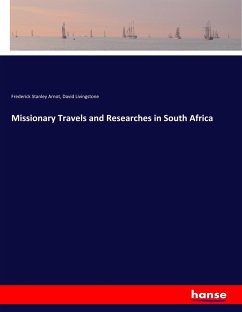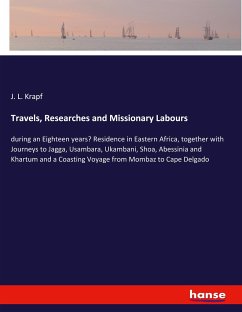
Missionary Travels and Researches in South Africa
Versandkostenfrei!
Versandfertig in 6-10 Tagen
14,99 €
inkl. MwSt.

PAYBACK Punkte
7 °P sammeln!
In "Missionary Travels and Researches in South Africa," David Livingstone provides a profound account of his explorations and missionary work across the southern African continent during the mid-19th century. His writing melds detailed observations of geography, botany, and anthropology with an empathetic portrayal of different cultures he encountered. Livingstone's narrative style combines scientific inquiry with personal reflection, offering a comprehensive view of the physical and social landscapes he traversed. The book also serves as a testament to the era of exploration where imperialism...
In "Missionary Travels and Researches in South Africa," David Livingstone provides a profound account of his explorations and missionary work across the southern African continent during the mid-19th century. His writing melds detailed observations of geography, botany, and anthropology with an empathetic portrayal of different cultures he encountered. Livingstone's narrative style combines scientific inquiry with personal reflection, offering a comprehensive view of the physical and social landscapes he traversed. The book also serves as a testament to the era of exploration where imperialism was both a driving force and a backdrop, as Livingstone grapples with the moral complexities of his mission in the context of European colonization. David Livingstone, a Scottish missionary and explorer, was deeply influenced by his evangelical upbringing and a desire to bring Christianity to Africa, as well as to end the slave trade. His extensive travels, fueled by an insatiable curiosityand commitment to service, are a reflection of his belief that understanding and compassion could bridge cultural divides. Livingstone's scientific and humanitarian mission was marked by a sense of responsibility towards the communities he engaged with, making his insights particularly valuable to contemporary readers. I highly recommend "Missionary Travels and Researches in South Africa" for those interested in explorative literature, colonial history, and the intersection of science and theology. Livingstone's account not only serves as an essential document of African geography and culture but also challenges readers to reflect on the ethical implications of missionary work in the context of imperialism.












